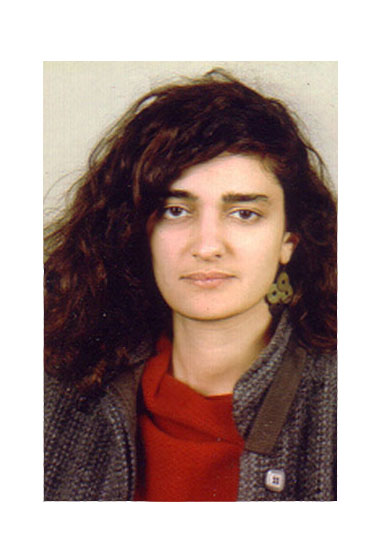Plasticity
By Marwa Arsanios
Mondays, Wednesdays & Fridays from April 5 to April 23
With Catherine Malabou, Lama El Khatib, The Institute for Incongruous Translation (Natascha Sadr Haghighian and Ashkan Sepahvand)
This chapter will be held online.
REGISTRATION IS CLOSED
What are the tools that can help us inhabit the frictions at play between human and more-than-human environments, when our survival as a species depends on the survival of entire biospheres? What are the forms that can allow us to open a space for tending to the limits of our so-called human ‘agency’, as it directly confronts us with its historical significance as a means of domination, but also emancipation? In this chapter, we will be engaging with and through the works of scholars and artists invested in the traditions of historical and new materialism, Marxist feminism, and insurgent universalism in order to think about new tools for action and praxis within our current political condition and its impasses. We will attempt to rethink the category of ‘human’ based on the ground upon which we stand and the biosphere in which we move.
In her essay, “The Ontology of the Accident: An Essay on Destructive Plasticity", scholar Catherine Malabou describes the process of transformation that follows a destructive event as a moment where a new form of being emerges, foreign to the previous one:“What destructive plasticity invites us to consider is the suffering caused by an absence of suffering, in the emergence of a new form of being, a stranger to the one before”. How can we think through this new being that is disconnected from its own so-called “substance”,wherein the past is no longer inscribed as a trace? This would entail a paradigmatic shift from the concepts of ruin, trace, and inscription (écriture) towards plasticity. We will take the notion of “destructive plasticity” as a departing point to imagine forms, structures, and infrastructures that could emerge on the melted ground that we inhabit, while putting it in opposition to “elasticity” or “flexibility” - seen as the ultimate qualities in a capitalist economy of production. Plasticity, on the other hand, entails a rebellious resistance from the side of the matter towards its human manipulator.
Through different reading sessions and workshops, we will discuss aesthetic forms that could mediate and open spaces for listening and viewing the melted down space that appear as voided. We will ask ourselves: How can we think of the void, the vacuum, and aesthetics of destruction as transformative spaces that can be re-appropriated beyond or through legality and property? Far from fetishizing any of those states and spaces, we will attempt to open new spaces of struggles and contradictions.
Schedule:
- 5th of April:
5:00pm – 8:00pm Beirut time: 30 min Introduction of the chapter, followed by preparation and discussion of two short essays by Catherine Malabou. *Upon the completion of the registration process, the participants will be asked to divide into groups and prepare the essays in advance in order to present and discuss the key concepts during the session.
- 7th of April:
5:00pm – 7:00pm Beirut time: Session with guest Catherine Malabou
- 9th of April:
5:00pm – 7:00pm Beirut time : Discussion session based on Catherine Malabou’s session
- 12th of April:
5:00pm – 7:00pm Beirut time: Reading group + Practices we learn from
- 14th of April:
5:00pm – 7:00pm Beirut time: Reading group + Practices we learn from
- 16th of April:
5:00pm – 7:00pm Beirut time: Session with the Institute of Incongruous Translation
- 19th of April:
3:00pm – 5:00pm Beirut time: Session with the Institute of Incongruous Translation
- 21st of April:
3:00pm – 5:00pm Beirut time: Workshop
- 23rd of April:
3:00pm – 5:00pm Beirut time: Workshop
Marwa Arsanios is an artist, filmmaker and researcher who reconsiders politics of the mid-twentieth century from a contemporary perspective. She approaches research collaboratively and seeks to work across disciplines. Arsanios has been the subject of solo exhibitions at Skuc Gallery, Ljubljana (2018); Beirut Art Center (2017); Hammer Museum, Los Angeles (2016); FKA Witte de With Center for Contemporary Art, Rotterdam (2016); Kunsthalle Lissabon, Lisbon (2015); and Art in General, New York (2015). Her work has also been shown in a number of group exhibitions, including as part of the Berlin Biennial (2020), Warsaw Biennial (2019), Sharjah Biennial (2019), Gwangju Biennial (2018), and Lulea Biennial (2018), as well as in From Ear to Ear to Eye, Nottingham Contemporary, UK (2017); Home Return, Maxxi Museum, Rome (2017); Let’s Talk about the Weather, Sursock Museum, Beirut (2016); HERE AND NOW, Ludwig Museum, Cologne (2016); Thessaloniki Biennial (2015); Home Works Forum, Ashkal Alwan, Beirut (2010, 2013, 2015); Here and Elsewhere, New Museum, New York (2014); 55th Venice Biennale (2013); Meeting Points 7 – Ten Thousand Wiles and a Hundred Thousand Tricks, M HKA, Antwerp (2013); In Other Words, nGbK, Berlin (2012); and 12th Istanbul Biennial (2011), among others. She was awarded the Georges de Beauregard award at FID Marseille (2019), the Special Prize of the Pinchuk Future Generation Art Prize (2012), and was nominated for the Paulo Cunha e Silva Art Prize (2017) and the Han Nefkens Foundation Award (2014). She was also a fellow at Akademie Schloss Solitude, Stuttgart, Germany (2014) and Tokyo Wonder Site, Tokyo Arts and Space (2010). She is the co-founder of 98weeks Research Project. Arsanios received a Master of Fine Art, University of the Arts London (2007) and was a researcher in the Fine Art Department at Jan Van Eyck Academie, Maastricht (2011–2012). She is currently a PhD candidate at the Akademie der bildenden Kunst in Vienna









